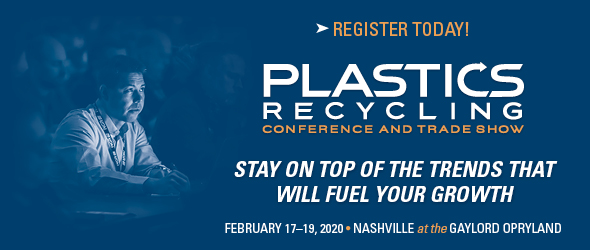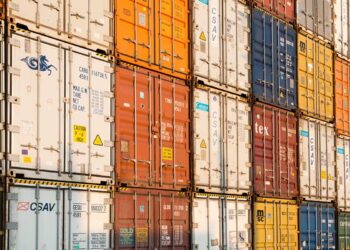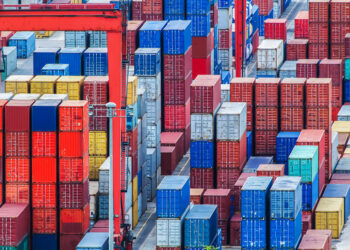The 2020 Plastics Recycling Conference is just over a week away, and to help you prepare, we’re offering insight from another industry leader set to take the stage.
Meet Rolph Payet, who leads the Basel Convention on the Control of Transboundary Movements of Hazardous Wastes and their Disposal.
Last year, the 187 governments that are party to the global waste treaty approved changes that strengthened rules around international shipments of scrap plastics. The long-term impacts of the decision remain unclear, but exporters have predicted significant market disruption.
What do the new requirements of the treaty entail?
Rolph Poyet: Each party to the convention has to minimize the generation of the plastic wastes of most concern, and each party has to strictly control imports, transits and exports of such wastes and only allow transboundary movements when the wastes will be managed in an environmentally sound manner.
When Norway first proposed the changes in the summer of 2018, had the topic of controlling the movement of plastic waste come up before or was it a first for the parties to consider such changes?
Because of the possible negative impacts of plastic waste on human health and the environment, plastic waste has been a specific waste stream of concern under the Basel Convention for many years. Already in 2002, the parties to the convention adopted technical guidelines for the identification and environmentally sound management of plastic wastes and for their disposal.
What changed in 2019 was the willingness of the parties to better control this waste stream, and this was done through a series of steps including by amending three annexes to the convention. These amendments bring a broader range of plastic wastes within the scope of the convention. These now include not only hazardous plastic wastes (listed in Annex VIII), but also plastic wastes that require special consideration, namely those that are difficult to recycle (listed in Annex II).
An export of those plastic wastes can only take place if the importing country expressly consents to the import, and if the wastes will be managed in an environmentally sound manner in the importing country. On the other hand, non-hazardous, clean and sorted plastic waste destined for recycling in an environmentally sound manner (listed in Annex IX) can be traded without applying this prior informed consent procedure. The amendments as such do not imply a ban on the import, transit or export of plastic waste.
“One clear benefit of these amendments for the recycling industry is clarity to the rules governing the international trade of plastic wastes.”
Some in the industry anticipate the controls, which will go into effect January 1, 2021, will have a sizable impact on the global plastics recycling industry. How do you envision it will impact the industry?
It is on purpose that the parties to the convention have delayed the coming into effect of the plastic waste entries to January 2021, and I believe one of their concerns is to ensure that the global plastics recycling industry is in a position to adjust to new opportunities and requirements. One clear benefit of these amendments for the recycling industry is clarity to the rules governing the international trade of plastic wastes. We know, for instance, that when it comes to the trade of plastic waste mixed with other waste, some parties will classify such waste as household wastes, which is a waste stream controlled by the Basel Convention, while others will not. The upcoming amendments aim to bring clarity to the rules of the game and are expected to benefit those involved in these transactions, including the recycling industry.
Do you think it will spur domestic development of plastic recycling outlets?
One opportunity is indeed a possible growth in domestic recycling facilities. But another opportunity is improvements in the sorting, collection and cleaning of plastic wastes intended for recycling, whether they are then exported to another country for recycling or recycled domestically.
Rolph Payet will be speaking on the “Export Landscape Explained” panel, slated for Tuesday, Feb. 18 at 1:30 p.m. Other panelists include Surendra Patawari of broker Gemini Corporation and Meghan Butler of West Coast materials recovery facility (MRF) operator Recology. See the full agenda lineup on the conference site.
























